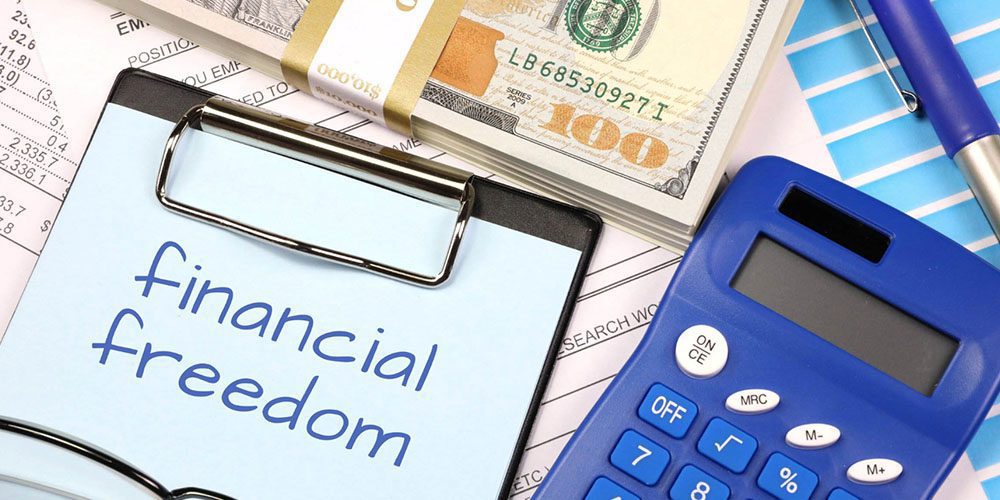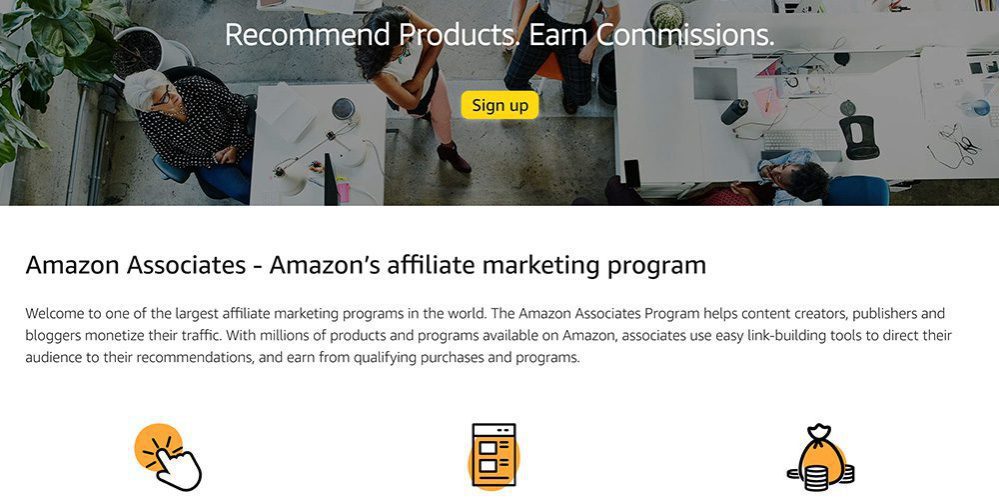La independencia financiera es un viaje que suele empezar dando pequeños pasos, pero que puede conducir a grandes recompensas. Ser independiente económicamente significa poder tomar decisiones y construir una vida a tu aire. Pero si no sabes por dónde empezar, la perspectiva de alcanzar la independencia financiera puede ser desalentadora.
La buena noticia es que no tiene por qué ser tan intimidante. Con algo de dedicación y conocimientos, puede llegar a ser económicamente independiente y asegurar su futuro, independientemente de su punto de partida. Echemos un vistazo a lo que hace falta para lograr este objetivo, así como a consejos prácticos para conseguirlo.
En primer lugar, la independencia financiera no es algo que ocurra de la noche a la mañana: lleva tiempo y esfuerzo conseguirla. Esto significa desarrollar hábitos conscientes en torno al presupuesto, ahorrar dineroInvertir con prudencia y aumentar tus ingresos para tener un verdadero control sobre tus finanzas. Para ello, es importante tener una idea clara de cómo funciona el dinero y de cómo cada decisión que tomes hoy afectará a tu riqueza a largo plazo en el futuro.
Una vez que tenga una idea de lo que se necesita para ser verdaderamente libre e independiente desde el punto de vista financiero, el siguiente paso es poner en práctica estrategias que le ayuden a conseguirlo. Esto puede incluir la creación de un fondo de emergencia o invirtiendo en fondos indexados o bienes inmuebles, lo que mejor se adapte a su situación individual. También es importante no olvidarse de la reducción de la deuda; centrarse en pagar las deudas lo antes posible también debería formar parte del plan general para alcanzar la libertad financiera.
No importa cuál sea su punto de partida en el camino hacia la independencia financiera, ya sea simplemente tener conciencia de las finanzas o haber completado objetivos financieros previos, con concentración y compromiso, todos podemos alcanzar una verdadera autonomía financiera. Todo lo que se necesita es un poco de reflexión y planificación estratégica sobre la mejor manera de seguir el camino hacia el éxito.
Calcula tus gastos e ingresos
Si quieres ser económicamente independiente, el primer paso es calcular tus gastos e ingresos. Esto puede parecer desalentador si no sabes por dónde empezar, pero entender estas cifras es una parte importante para alcanzar la libertad financiera.
Aquí tienes algunos consejos para controlar tus finanzas:
- Haz una lista de todas tus fuentes de ingresos. Puede incluir su trabajo, inversiones, ingresos por alquiler de propiedades, negocios paralelos o cualquier otra fuente de ingresos.
- Calcule cuánto gasta en gastos cada mes. Haz un seguimiento de tus gastos y anota todo aquello en lo que gastas dinero, como el alquiler, los servicios públicos, la comida, el transporte, las facturas médicas y el ocio.
- Averigua cuántas deudas tienes. Saber qué tipo de deuda tiene le ayudará a priorizar qué facturas deben pagarse primero.
Puede que le lleve algún tiempo y esfuerzo hacerse una idea clara de cuál es su situación financiera en este momento, pero es un paso clave a la hora de tomar medidas para conseguir la independencia financiera. Dedicar un par de horas a evaluar y hacer un seguimiento de sus hábitos de gasto, revisar su informe crediticio, elaborar un presupuesto y tomar nota de las deudas que pueda tener no sólo le dará una idea de cómo las decisiones que tome hoy pueden afectar a su futuro, sino que también será un ejercicio revelador para entender cómo funciona el dinero y, lo que es más importante, cómo puede trabajar para usted si se gestiona correctamente.
Una vez que conozca su situación actual, le resultará mucho más fácil elaborar un plan de inversión y ahorro para el futuro. Es importante empezar con objetivos realistas que puedan alcanzarse a corto plazo, de modo que con el tiempo pueda ir alcanzando metas más ambiciosas. También debería considerar la posibilidad de crear un fondo de emergencia que le proporcione protección en momentos de dificultades financieras o costes inesperados. También es importante tener en cuenta las comisiones de las cuentas, ya que pueden suponer una carga para los recursos ahorrados o invertidos con prudencia.
Invertir con prudencia tampoco requiere grandes cantidades de dinero; hay muchas inversiones de bajo coste, como los fondos indexados, que permiten incluso a quienes tienen ingresos pequeños acumular capital a lo largo del tiempo y beneficiarse de los rendimientos de la inversión, mitigando al mismo tiempo los riesgos.
Crear un presupuesto y ceñirse a él
Para elaborar un presupuesto eficaz, empieza por hacer un seguimiento mensual de tus ingresos y gastos. Asegúrate de incluir todas las fuentes de ingresos, como tu sueldo, inversiones, negocios paralelos o cualquier otro dinero que recibas. A continuación, anota todos tus gastos, desde el alquiler y los servicios públicos hasta la comida, el transporte y el ocio. Cuando tengas una idea exacta de cuánto dinero entra y cuánto sale cada mes, podrás elaborar un presupuesto que tenga en cuenta ambas cifras.
Si busca áreas en las que pueda recortar gastos, podrá liberar fondos adicionales que le ayudarán a alcanzar sus objetivos financieros más rápidamente. Las áreas más comunes en las que la gente tiende a ahorrar dinero son las compras en el supermercado, las cenas fuera de casa, los gastos de ocio y los gastos de viaje. Asignar fondos a cada partida de gastos también le ayuda a motivarse para alcanzar esos objetivos más rápidamente, ya que les da forma y estructura tangibles.
Pero lo más importante a la hora de crear un presupuesto es asegurarse de que sea realista; establecer normas estrictas demasiado difíciles de cumplir sólo causará frustración a largo plazo. Como suele decirse: Los mejores planes...
Por lo tanto, asegúrese de establecer objetivos de ahorro alcanzables y, al mismo tiempo, salga de su zona de confort para progresar hacia la independencia financiera.
Invertir el dinero sabiamente
La clave para invertir con éxito es comprender cuáles son sus objetivos y, a continuación, seleccionar las mejores opciones disponibles para alcanzarlos.
Una estrategia para invertir el dinero consiste en buscar valores o fondos de alta rentabilidad por dividendo que puedan proporcionar un flujo de ingresos constante a lo largo del tiempo. Adoptar un enfoque más activo con estrategias de opciones también puede ser una forma de aumentar los rendimientos al tiempo que se mitiga la exposición al riesgo. Otra opción es crear una cartera de propiedades de alquiler, empezando con una propiedad y ampliándola poco a poco a medida que se adquiere más experiencia y se está más cómodo con el mercado.
A la hora de elegir un vehículo de inversión, asegúrese de investigar y no se lance ciegamente a algo simplemente porque todo el mundo lo hace. Infórmese sobre los distintos tipos de inversión para comprender bien su funcionamiento y los riesgos potenciales asociados. También es importante diversificar entre distintas clases de activos, como acciones, bonos y bienes inmuebles, para minimizar aún más el riesgo.
Por último, nunca invierta demasiado dinero en una sola cosa a la vez; repartirlo entre varias inversiones reducirá el impacto de cualquier pérdida si un área en particular se ve afectada. Realizar inversiones inteligentes ahora puede ayudarle a encaminarse hacia la independencia financiera en el futuro.
Tome decisiones inteligentes con su puntuación de crédito
Su puntuación crediticia es un factor importante para lograr la independencia financiera. Una buena puntuación crediticia le abrirá muchas oportunidades, como tipos de interés más bajos en préstamos y tarjetas de crédito, así como acceso a mejores opciones de inversión.
Cuando se trata de construir su puntuación de crédito, el primer paso es asegurarse de que está pagando todas sus facturas a tiempo y en su totalidad. Esto le ayudará a mantener bajo su índice de utilización del crédito, que es uno de los factores más importantes a la hora de determinar su puntuación crediticia. También debe mantenerse alejado de cualquier oferta de préstamos y líneas de crédito preaprobados o garantizados, ya que pueden tener un efecto adverso en su calificación.
Otra forma de mejorar su puntuación crediticia es aprovechar las ofertas de prestamistas responsables que informan mensualmente a las agencias de crédito. Si paga todos los meses los pequeños préstamos que les haya pedido, podrá ir acumulando un historial impresionante de pagos puntuales que mejorará significativamente su calificación. Además, asegúrese de no agotar todas las líneas de crédito disponibles, ya que esto también puede reducir su puntuación.
Tomar decisiones acertadas con su calificación crediticia ahora le ahorrará miles (y posiblemente incluso millones) a largo plazo, ya que le permitirá acceder a oportunidades de inversión más lucrativas y obtener mayores rendimientos de esas inversiones.
Disponga de un fondo de emergencia para gastos imprevistos
Tener un fondo de emergencia es un componente clave de la planificación para la independencia financiera. Es importante tener dinero reservado para gastos inesperados, como facturas médicas, reparaciones del coche o incluso la pérdida del trabajo. Con un fondo de emergencia, puedes estar seguro de que cualquier gasto imprevisto se cubrirá sin tener que endeudarte.
La cantidad que debe ahorrar en su fondo de emergencia depende de las circunstancias individuales, pero una buena regla general es aspirar a unos tres meses de gastos de manutención. Si es posible, considere la posibilidad de abrir una cuenta de ahorro independiente, sin acceso a sus otras cuentas, de modo que sólo pueda utilizarla en circunstancias extremas y con la planificación adecuada.
Cuando cree su fondo de emergencia, asegúrese de que el dinero se mantiene en activos líquidos, como efectivo o inversiones a corto plazo, como bonos del Estado y fondos del mercado monetario. De este modo, podrá acceder rápidamente al dinero en caso de necesidad, sin tener que preocuparse de bloquear las pérdidas debidas a las fluctuaciones del mercado.
Vive por debajo de tus posibilidades
Es fácil dejarse arrastrar por la cultura de la complacencia y el consumismo: comprar cosas cada vez mejores, seguir las tendencias e intentar estar a la altura de los "Jones". Pero, al fin y al cabo, vivir por encima de tus posibilidades nunca es sostenible ni sensato.
En lugar de perseguir posesiones materiales o utilizar las tarjetas de crédito como muleta para la gratificación instantánea, empieza a abrazar el minimalismo eligiendo conscientemente vivir por debajo de tus posibilidades. Esto significa decir "no" a las compras caras y "sí" al presupuesto: busca formas de ahorrar dinero en gastos cotidianos como la comida o las facturas.
En cuanto a las inversiones, concéntrese en invertir su dinero en activos a largo plazo, como acciones y participaciones, que se revalorizan con el tiempo, en lugar de optar por ganancias rápidas con alto riesgo. Al no tener que preocuparte más por estar a la última moda o por tener un aspecto impecable, puedes empezar a centrarte en lo que de verdad importa en la vida: ¡una sensación poderosa!
Así que olvídate de toda esa gente que te dice lo que tienen que hacer o comprar: tome hoy mismo las riendas de su destino financiero comprometiéndose a vivir por debajo de sus posibilidades. No se arrepentirá.
Automatice sus finanzas en la medida de lo posible
En el mundo actual, en el que la tecnología avanza con rapidez, no hay excusa para no aprovechar al máximo las herramientas de automatización en lo que respecta a las finanzas personales. Automatizar tus procesos financieros puede ahorrarte tiempo, dinero y energía.
Al automatizar sus pagos, puede asegurarse de que todas las facturas se pagan a tiempo y de que no se cobran intereses de demora ni intereses deudores en préstamos y cuentas de crédito. Esto también minimizará el riesgo de incurrir en comisiones por descubierto si no hay fondos suficientes en sus cuentas cuando vence un pago. Además, las transferencias automáticas pueden ayudarle a crear mejores hábitos de gasto y a asegurarse de que el dinero se transfiere a cuentas de ahorro para futuras inversiones o emergencias.
La automatización de los procesos financieros no sólo le da la tranquilidad de saber que todo está controlado, sino que también le libera un tiempo valioso para que pueda centrarse en las inversiones y otras formas de crear riqueza y seguridad. Por lo tanto, si desea maximizar la eficiencia con el mínimo esfuerzo, considere la posibilidad de automatizar tantas tareas financieras como sea posible.
He aquí algunos consejos prácticos para empezar:
- Establezca depósitos directos para las nóminas, de modo que una parte de cada salario vaya directamente a las cuentas de ahorro.
- Automatice las transferencias mensuales a cuentas de jubilación con ventajas fiscales, como 401(k)s, IRAs y 403(b)s.
- Establezca pagos automáticos para facturas periódicas, como el alquiler o la hipoteca, pagos de tarjetas de crédito, primas de seguros y servicios públicos, de modo que no tenga que preocuparse de transferir fondos manualmente cada mes ni de que le cobren recargos por demora.
- Utiliza aplicaciones presupuestarias que te ayuden a hacer un seguimiento continuo de los gastos, de modo que puedas entender mejor a dónde va a parar tu dinero y tomar decisiones más informadas sobre para qué ahorrar más adelante.
- Considere la posibilidad de utilizar robo-advisors o servicios de inversión automatizados que proporcionan asesoramiento financiero junto con asistencia para invertir en acciones y otros activos sin tener que gestionarlo todo usted mismo.
- Establezca cada mes recordatorios mediante alertas de correo electrónico/texto o notificaciones de calendario que le recuerden cuándo vencen las facturas y le recuerden las cantidades de transferencia necesarias para alcanzar objetivos a largo plazo, como ahorros para la jubilación o inversiones para obtener ingresos.
Pague sus deudas lo antes posible
Las deudas son una carga que puede pesar mucho sobre sus finanzas y su bienestar mental, por lo que es importante afrontarlas de frente. Eso significa centrarse en pagar la deuda más rápido en lugar de prolongar el dolor de tener un saldo pendiente.
Si te tomas en serio la idea de liberarte de las deudas, elabora un plan para saldarlas de la forma más rápida y eficaz posible. Empieza por hacer una lista de todas tus deudas y ordénalas por orden de prioridad, primero la que tenga el tipo de interés más alto y luego la que tenga el saldo más bajo. Esto no sólo le ayudará a identificar qué deudas deben ser tratadas en primer lugar, sino que también le dará una idea de cuánto dinero se necesita para pagarlas.
A continuación, busque opciones de consolidación o refinanciación de préstamos que puedan reducir su tipo de interés o distribuir el coste a lo largo de un periodo de tiempo más largo para reducir los pagos. Por último, establezca planes de pago automáticos para los pagos mínimos de cada deuda, pero añada fondos adicionales siempre que sea posible para saldarlas más rápidamente.
Puede que haya que hacer algunos sacrificios al principio, como recortar gastos innecesarios o aceptar un trabajo extra, pero el alivio y la libertad financiera que supone no tener deudas hace que al final merezca la pena.
Una vez que tengas un plan de ataque para hacer frente a tu deuda, es importante que seas disciplinado y constante con los pagos. Esto puede significar configurar recordatorios en tu teléfono o calendario para que no se te pase ningún pago y acumules costosos recargos por demora.
Si se está retrasando en los pagos, póngase en contacto con los prestamistas inmediatamente, ya que pueden estar dispuestos a elaborar planes de pago que se ajusten mejor a su presupuesto. Acudir a asesores de crédito y organizaciones sin ánimo de lucro también puede proporcionar recursos útiles para navegar por lo que puede parecer una situación abrumadora.
Si puede hacer más que los pagos mínimos cada mes, céntrese primero en crear un fondo de emergencia antes de invertir en otros activos como acciones o bonos. Tener suficientes ahorros almacenados te dará la seguridad de saber que si surge una factura inesperada o hay una caída en los ingresos, esos fondos estarán disponibles para su uso sin tener que endeudarte más.
Si busca ayuda adicional para gestionar sus finanzas y saldar sus deudas, considere la posibilidad de contratar a un planificador financiero que pueda proporcionarle valiosos consejos sobre cómo elaborar un presupuesto e invertir el dinero de forma inteligente en función de sus circunstancias individuales. Un planificador financiero también puede ayudarle a identificar áreas en las que puede ahorrar dinero a través de créditos o deducciones fiscales, así como descubrir estrategias de inversión a largo plazo que tienen el potencial de generar mayores rendimientos.
Pagar las deudas no es tarea fácil, pero con paciencia y determinación es posible liberarse de ellas en un plazo razonable. Empieza hoy mismo a ser consciente de tus hábitos de gasto y crea un plan de ataque para hacer frente a las deudas.
Encuentra un negocio paralelo que te aporte ingresos extra
Las actividades secundarias son una forma excelente de ganar dinero extra, adquirir nuevas habilidades y dar un paso más hacia la libertad financiera. Tanto si quieres complementar tus ingresos principales como si quieres crear un flujo de ingresos múltiples a lo largo de los años, encontrar el trabajo secundario adecuado puede ser muy beneficioso.
A quienes desean generar un poco de dinero extra, no les faltan opciones. Desde trabajar como autónomo en tu área de especialización u ofrecer servicios como pasear al perro, dar clases particulares o trabajar como asistente virtual, entre otros, las posibilidades son prácticamente ilimitadas. También puedes considerar la posibilidad de aprovechar plataformas online como Udemy, donde puedes impartir cursos relacionados con aficiones que te interesen.
Al diversificar tus fuentes de ingresos, tendrás más dinero ahorrado en caso de que una de ellas se agote repentinamente. Esto te ayudará a mantener una seguridad financiera general, a la vez que aumentas tus ahorros y eliminas tus deudas lo antes posible.
La creación de múltiples fuentes de ingresos puede dar lugar a ganancias significativas con el tiempo, y es una forma viable de aumentar su seguridad financiera. Aunque un flujo de ingresos pueda parecer al principio un goteo, si se van añadiendo fuentes secundarias gradualmente con el tiempo, se puede llegar rápidamente a crear un gran fondo de ingresos.
Al aprovechar plataformas en línea como Udemy y otras oportunidades de trabajo autónomo, puedes diversificar más allá del ámbito de tu trabajo o carrera principal y aprovechar nuevas fuentes potenciales de ingresos que no requieren mucho tiempo o esfuerzo adicional. Al diversificar, también te aseguras de que nunca te expones a un riesgo demasiado grande si alguna fuente en particular falla por un motivo u otro.
A lo largo de meses o años de trabajo en actividades secundarias y de crecimiento de múltiples fuentes, éstas pueden llegar a ser lo suficientemente sustanciales como para que algún día puedan mantenerte por sí solas, sobre todo una vez que el interés compuesto entre en acción con las inversiones. El poder del interés compuesto continuará trabajando a tu favor a medida que cada fuente siga creciendo independientemente de las demás, siempre que todas las fuentes se gestionen adecuadamente y se mantenga el crecimiento.
Así que anímate y empieza a explorar diferentes actividades secundarias que podrían aportarte un dinero extra para todos esos pequeños lujos que te mereces después de trabajar muchas horas o de empezar proyectos en casa. Con la debida diligencia y planificación, esto podría convertirse fácilmente en algo más que un simple flujo adicional, ¡incluso podría llegar a ser tu principal fuente de ingresos con el tiempo!
Seguir empujando e invirtiendo, pase lo que pase
No importa lo que la vida te depare, es esencial que te mantengas centrado en tus objetivos y sigas empujando e invirtiendo en ellos. Es fácil perderse en momentos de duda y miedo, sobre todo en épocas difíciles, pero esos son los momentos en los que es más importante seguir adelante y mantenerse motivado.
Cuando los tiempos son difíciles y el dinero escasea, cada dólar cuenta, así que a veces eso significa que hay que empezar poco a poco. Aunque sólo puedas permitirte dedicar $1 al día a invertir o empezar con un pequeño negocio secundario, no dejes que la falta de recursos te impida pasar a la acción. Recuerda que Roma no se construyó en un día.
Las personas con más éxito conocen el poder del esfuerzo constante; incluso los pasos más pequeños en la dirección correcta pueden conducir a grandes victorias con el tiempo. Así que no te rindas por muy difíciles que parezcan las cosas. ¡Tú puedes!
¿Va por buen camino hacia la libertad financiera? ¿Cuáles han sido los mayores retos que has tenido que superar? Házmelo saber en los comentarios de abajo.
¿Es usted una persona más visual? Si prefieres ver un vídeo, aquí lo tienes:

















